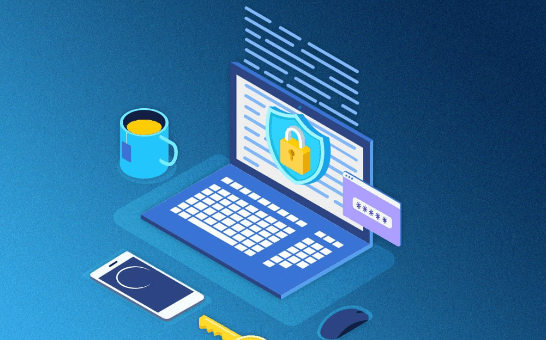
Mastering Enhanced Due Diligence: Elevating Financial Safeguards
- 0
Enhanced Due Diligence (EDD) stands as a comprehensive process that surpasses standard Know Your Customer (KYC) practices. It empowers businesses with a deep understanding of their clients, delving into intricate details that aid in identifying potential risks and deterring illicit activities.
In the relentless pursuit of safeguarding financial stability against the influx of illicit funds, governments, regulators, and financial institutions exert concerted efforts. Astonishingly, an estimated $2 trillion manages to evade detection annually, infiltrating the global banking system. This persistent challenge has prompted the implementation of novel legislations, strengthened enforcement mechanisms, and heightened collaboration in an ongoing endeavor.
Recent statistics underscore the imperative nature of Enhanced Due Diligence:
Global Illicit Cash Flow: According to the United Nations Office on Drugs and Crime (UNODC), illicit financial flows range between $1.6 trillion and $2.2 trillion annually. Enhanced Due Diligence becomes pivotal in tracking and preventing these substantial amounts from infiltrating legitimate financial channels.
Regulatory Landscape: A report by LexisNexis Risk Solutions reveals that financial institutions allocate an average of $60 million annually for anti-money laundering (AML) compliance. Enhanced Due Diligence emerges as a strategic approach to effectively utilize these resources and ensure stringent compliance.
Complex Money Laundering: The Financial Action Task Force (FATF) estimates that money laundering comprises approximately 2-5% of global GDP, amounting to $800 billion – $2 trillion annually. EDD acts as a crucial countermeasure to curtail the intricate networks that facilitate such activities.
Legal Repercussions: Non-compliance with AML regulations can lead to substantial fines. In 2021, the US Treasury’s Financial Crimes Enforcement Network (FinCEN) imposed penalties exceeding $700 million. EDD implementation aids financial institutions in avoiding such penalties.
Industry Efforts: A Deloitte survey indicates that 63% of organizations plan to increase their investments in AML technologies, including EDD solutions. This trend showcases the growing recognition of EDD’s significance in preventing financial crimes.
Enhance risk assessment capabilities, and better safeguard against illicit financial activities!
A collection of doable actions for putting Enhanced Due Diligence (EDD) measures into practice have been suggested by the Financial Action Task Force (FATF). These actions are intended to improve consumer identification and comprehension, reduce risks, and fight financial crime. Here are some steps:
1. Expanding Information Sources
2. Conducting Thorough Searches
3. Verifying the Source of Funds
4. Obtaining Detailed Information
5. Commissioning Intelligence Reports
Combination of Technology and Expertise in Enhanced Due Diligence (EDD)
The effectiveness of enhanced due diligence (EDD) in the constantly shifting world of risk and criminal activity resides in the ideal combination of technology and knowledge. Firms must adopt flexibility and innovation in their approach to EDD as they do with other facets of their anti-money laundering and combating the financing of terrorism (AML/CFT) policy as they adjust to changing risk profiles. Although technology offers priceless tools to streamline EDD procedures, human awareness continues to be the key component in spotting and countering developing dangers.
Unraveling the Key Measures for Thorough Checks
Some measures should be taken as part of an advanced due diligence check. These will usually involve some of the following:
- Requesting and verifying further identity and address proof.
- Carrying out more thorough inspections
- Doing thorough investigations on all parties involved in the process.
- Request documentation proving the origin of the money being used in the prospective transaction
- Look for more proof that the final benefactor is who they claim they are.
- Verify if any parties or organizations have been sanctioned
When Is Enhanced Due Diligence Compliance Required?
In some circumstances where there is a heightened danger of financial crime, such as money laundering, terrorist financing, or corruption, Enhanced Due Diligence (EDD) compliance is frequently necessary.
Non-Face-to-Face Transactions: EDD measures are often necessary in situations where there is no direct physical contact with the customer, such as online or remote transactions. This is due to the possibility of identity theft, impersonation, and fraudulent behaviors rising in non-face-to-face encounters.
Higher-Risk Products or Services: Some products or services, such as private banking, correspondent banking partnerships, or money services businesses, inherently involve a higher risk of financial crime. To reduce potential dangers, EDD compliance is required when working in these higher-risk sectors.
EDD in banking: A Part of KYC Compliance
Enhanced Due Diligence (EDD) in banking industry refers to the extensive process used by banks to confirm the identity of their clients and make sure that their involvement in financial crime or money laundering is kept to a minimum. In carrying out their due diligence, banks must:
- Establish and Authenticate Customer Identity
- Gain Insight into Customer Activities
- Assess Money Laundering Risks
- Ongoing Monitoring of Customer Activities
EDD is a crucial step in the KYC compliance procedure in the banking industry. It entails gathering data in order to confirm customers’ identities and determine the precise level of money laundering risk that each one poses. As this information can be utilized to reduce the risks involved, the customer is requested for significantly more information during the EDD process than they are during the CDD process.







